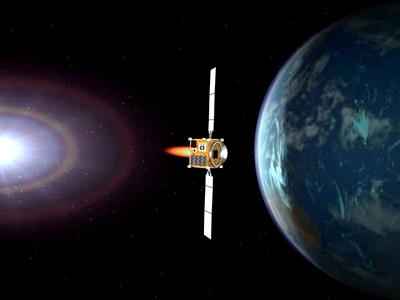Create a center to deflect meteorites
Iowa State University, USA, has just established a research center that brings together scientists to find the best way to divert the orbits of dangerous cosmic objects to Earth.
Deflecting the movement of planetary planets, meteors, comets . can hit the Earth is a mission that requires the cooperation of scientists around the world.
In order to facilitate that cooperation, Bong Wie, an aerospace engineering professor at Iowa State University, established the Asteroid Deflection Research Center.
The center - led by Professor Wie - will review and evaluate all available and feasible technologies to prevent the risk of collisions between asteroids and the Earth, a possible disaster. ending human civilization.
In recent years, experts around the world have focused on the threat of objects near Earth (NEO). NASA has submitted to the US Congress a 137-page report on the discovery and deflection of NEO. The European Space Agency (ESA) has also made detailed plans for the Don Quijote mission.

Photo of a spaceship in the mission Don Quijote is performing the task of deflecting meteorites (Photo: Spaceguard)
But Professor Wie said: 'Up to now, there has been no consensus among the scientific community about what method or technology can be applied to deflect the trajectory of dangerous NEOs. Therefore, we set up this center for experts to study technical solutions together in an open mind and learn from each other '.
Bong Wie said the center will host a major event called 'International Asteroid Deflection Technology' this fall.
- NASA: Deflect meteorites with nuclear weapons
- Deflect meteorites with ... mirrors
- Russia will prevent meteorites from crashing into the earth
- The surface of the 'giant' meteorite landed on Earth
- Europe set up a meteorite monitoring center
- Meteorites fall and create a giant double hole in Sweden
- The origin and name of meteorite
- 'Fighting' with anti-meteorite 'apocalypse'
- Argentina: A family hides up to 2.5 tons of meteorites
- Huge meteorites will graze the Earth
- Detecting algae-like fossils in meteorites
- Discover large meteorite in Antarctica
 Van Allen's belt and evidence that the Apollo 11 mission to the Moon was myth
Van Allen's belt and evidence that the Apollo 11 mission to the Moon was myth The levels of civilization in the universe (Kardashev scale)
The levels of civilization in the universe (Kardashev scale) Today Mars, the sun and the Earth are aligned
Today Mars, the sun and the Earth are aligned The Amazon owner announced a secret plan to build a space base for thousands of people
The Amazon owner announced a secret plan to build a space base for thousands of people